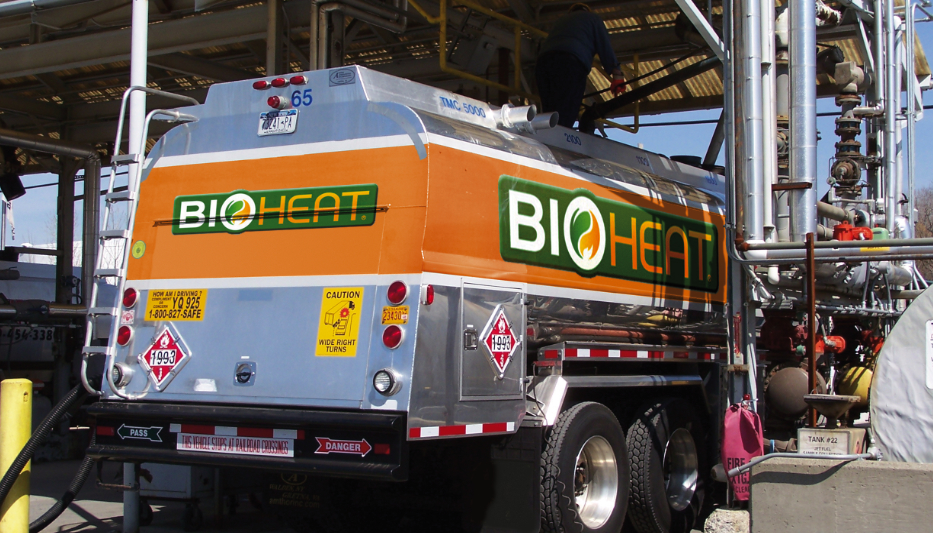Heating oil industry calls for 800 million gallons of biodiesel per year by 2023
By now, you’ve heard the news: the heating oil industry plans to implement industry-wide blends of B20 Bioheat® by 2023, B50 by 2030 and a 100 percent renewable fuel by 2050. To reach the first goal post, industry reports suggest that the Northeast region will require 800 million gallons of biodiesel per year.
It’s easy to see how industry insiders might have arrived at this estimate. The Northeast heating oil market is approximately 4 billion gallons strong. Twenty percent of 4 billion is 800 million. Simple math, right?
What might seem a bit more complex to the dealer who hasn’t already begun blending biofuels or marketing Bioheat is exactly how the biodiesel and heating oil industries will meet this demand. Is existing transportation and storage infrastructure sufficient? If not, what additional improvements need to be made? What about the supply side?
The plan presented by NEFI and global management consulting firm Kearney on September 23 offers answers to many of these questions. What it doesn’t answer is exactly who will supply the region’s 800 million gallons of biodiesel and which heating oil dealers will step up to answer the call for B20 Bioheat fuel blends. This is, of course, up to industry stakeholders themselves to decide.
As North America’s leading biodiesel producer, Renewable Energy Group (REG) is prepared to work with heating oil wholesalers, distributors and retailers to help meet demand for industry-wide B20. In fact, we’ve been working closely with industry stakeholders in the Northeast for well over a decade. You might even say all that planning has been leading up to this very moment.
The Supply
According to the Energy Information Administration, U.S. biodiesel plants had a combined annual production capacity of 2.6 billion gallons in 2019. However, production reached only 1.7 billion gallons in 2019, meaning only 65 percent of production capacity was utilized. That leaves plenty of room to grow: about 900 million gallons give or take.
REG produced 495 million gallons in 2019. The carbon reduction from REG-produced biomass-based diesel totaled 4.2 million metric tons – equal to the greenhouse gas emissions from 10.4 billion vehicle miles, according to the U.S. Environmental Protection Agency.
Currently, REG bioidiesel and Bioheat fuel products are available at 16 terminal locations in the Northeast alone. Several of these terminals are rail connected, allowing them to bring in biodiesel supplies by train from REG production facilities in the Midwest. For example, the Broco Oil terminal in Haverhill, Massachusetts can bring in up to 32 rail cars and store up to 90,000 gallons of biodiesel at once.
Remember, that’s just one of 16 Northeast facilities. REG also has terminals in Mechanicsburg, PA; Sewaren, NJ; Newark, NJ; Inwood, NY; Hicksville, NY; Yaphank, NY, Lawrence, NY; Albany, NY; New Haven, CT; Enfield, CT; Providence, RI; Braintree, MA; Everett, MA; Portsmouth, NH; and Portland, ME.
It’s also worth noting that a single carload of rail transport can carry approximately 28,000 gallons of biodiesel. As stated in the heating oil industry’s plan to reach B20 by 2023, “Much of the required infrastructure is already in place, and supply can be built up to meet future demand.”
The Demand
This is where you and your customers come in. We already know that the Northeast heating oil industry has called for 800 million gallons of biodiesel by 2023. The companies that receive those gallons and blend them into their supplies will not only deliver significant emission reductions to their customers; they may also enjoy financial incentives for doing so.
Biodiesel-heating oil blenders that comply with the appropriate Renewable Fuel Standard regulations can sell RINs back into the marketplace. Blenders in Massachusetts can also participate in the state’s Alternative Energy Portfolio Standard program. Similar programs are in the works for Connecticut and Rhode Island. Meanwhile, New York is looking at adopting its own Low-Carbon Fuel Standard.
The demand for biodiesel is there and growing. The only question now is which heating oil dealers will help the region meet that demand. One possible answer: it will be those dealers who are most serious about protecting the future of their business. If this is you, then REG is eager to help you move fuel forward on the road to net-zero. To get started, please contact me directly at steve.klein@regi.com or 515-239-8364.


